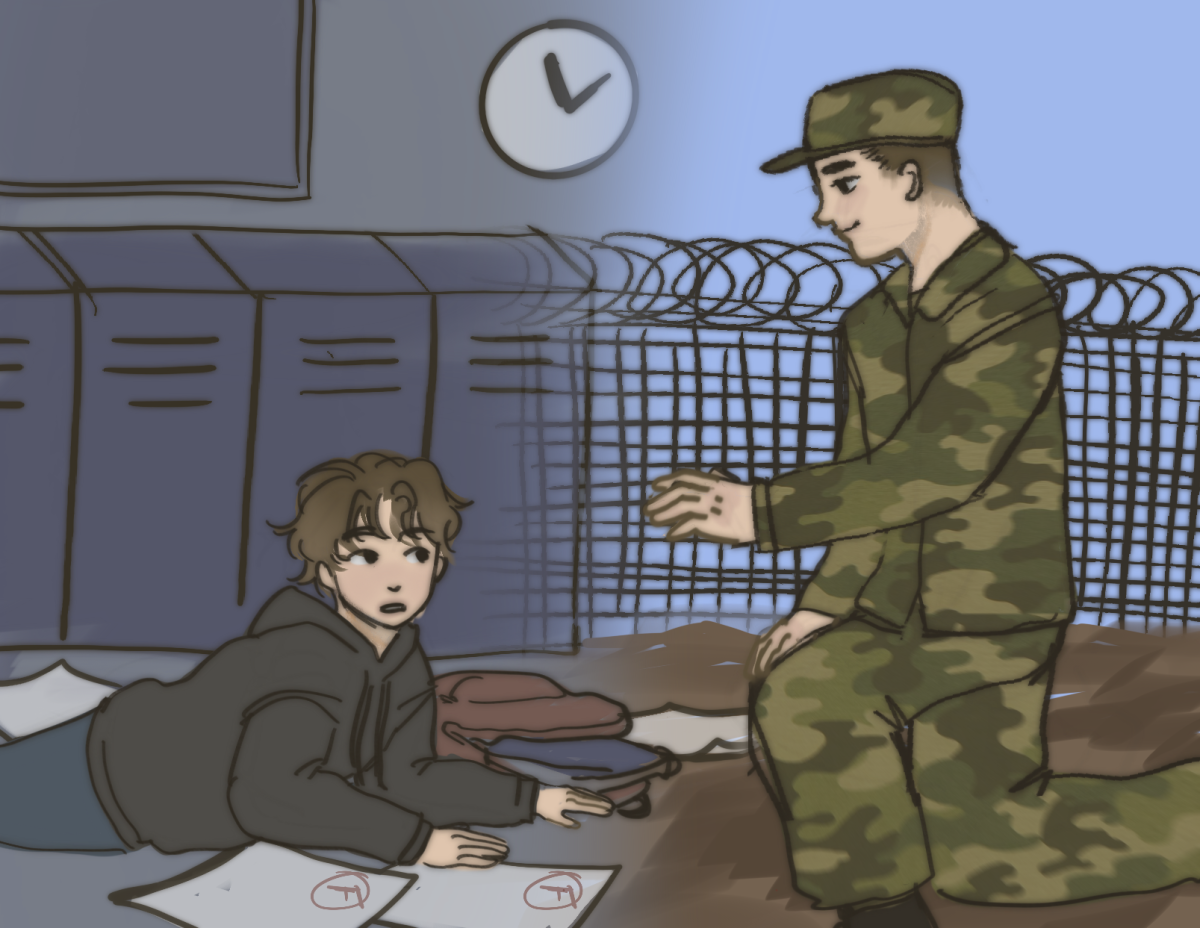In a culture where graduation from a top tier university is what most high schoolers view as the only path to success, the military is an often overlooked post-high school choice. Joining the armed forces delivers unique benefits that university degrees cannot, providing valuable skills and qualities crucial for success beyond academics.
“The approach to leadership is deliberate, allowing each midshipman to develop into the future officers of the Navy and Marine Corps,” Naval Academy graduate and Northwood Class of 2022 alumnus Brooke Guan said. “This unique structure ensures that by the time we graduate, we are not just equipped with knowledge, but are also prepared to lead with integrity, compassion, and confidence in any environment we encounter.”
Primarily, the military will teach leadership skills, encompassing effective communication, creative problem-solving, compassion and confidence, which are essential to almost every career. Subsequently, many companies prefer to hire veterans because of their unique skill sets which encompass operating under stress, adaptability and a strong work ethic.
“Military service offers training programs that train you for a career. It goes beyond classroom training,” said College and Career Counselor Kathi Smith. “It sets you up for a lifetime career if one should so choose.”
A study from the US Bureau of Labor Statistics shows a lower unemployment rate for veterans compared to non-veterans in 2023. Programs such as Veteran’s Preference increase the likelihood of veterans being hired after returning to civilian life.
While some professions do require advanced degrees, students have options to pursue higher learning while still serving in the military. The ROTC program offered at many universities puts students on a path to becoming an officer in the military, rather than serving as an enlisted member. Students can also directly apply to a military academy, such as West Point.
The GI Bill and other military assistance programs offer eligible service members up to 100% paid tuition after 36 months of honorable active-duty service, covering fees for books and other academic supplies. Student loans, which impact 42.8 million students per year, are the primary reason why many adults never attended or dropped out of college.
“I feel like going into the military is a sensible choice because it gives you an immediate source of income without you having to worry about paying off debt from getting a degree that doesn’t guarantee you a job,” senior Brayden Pryana said.
Although it may seem risky to pursue a conventionally different career path than your peers, there are significant financial and emotional benefits to working for the military. If you’re interested in enlisting or joining an ROTC program, discuss your options with Kathi Smith at the College and Career Center, attend seminars during tutorial hosted by military personnel for prospective recruits or look up a nearby recruiter to consider what you need for a career in the military.




















































